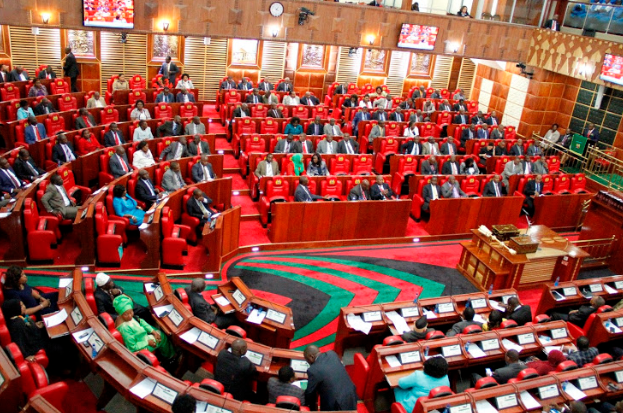The National Assembly on Tuesday rejected the Mung Beans Bill 2022 during its second reading, with a majority of lawmakers voting against it. The controversial Bill now enters a 30-day mediation process to determine its future.
Speakers Moses Wetangula (National Assembly) and Amason Kingi (Senate) will appoint a mediation committee made up of equal members from both Houses. This committee will have 30 days to create an agreed version of the Bill and submit their report to both Houses. According to Parliament, “If both Houses approve the Report of the mediation committee and the mediated version of the Bill, the Bill is deemed to have been passed.”
Sponsored by Kitui Senator Enoch Wambua, the Bill was initially passed in the Senate before being referred to the National Assembly. Its goal is to establish a framework for regulating and promoting the mung bean (Ndengu) industry in Kenya, with the aim of increasing its economic value.
The Bill includes provisions that require individuals to obtain a license from their county government before selling mung beans. Failure to comply would constitute an offense, carrying penalties of up to Ksh. 1 million or imprisonment for up to two years, or both.
Additionally, the Bill specifies that county governments will appoint County Executive Committees (CECs) to oversee the issuance of licenses. These committees would consist of a chairperson, a representative of mung bean growers in the county, and three public officers from the agriculture department.
The CECs would also be responsible for maintaining a registry of mung bean growers, detailing each grower’s name, location, land size, parcel number, and the variety of mung beans grown.
Each county will have the flexibility to set its own criteria for registering mung bean growers within its jurisdiction. Amid growing criticism of the Mung Beans Bill 2022, Senator Enoch Wambua clarified that not all Kenyans would be required to obtain a license to grow the beans. He explained that only individuals or entities involved in marketing, processing, or large-scale trading of mung beans and related products would need to obtain licenses.
Senator Wambua also emphasized that the Bill only mandates small and medium-sized mung bean farmers to register with the County Executive Committee (CEC) member responsible for agriculture. He likened this registration process to the existing practices for tea and coffee farmers, aimed at ensuring proper regulation and support for the industry.



